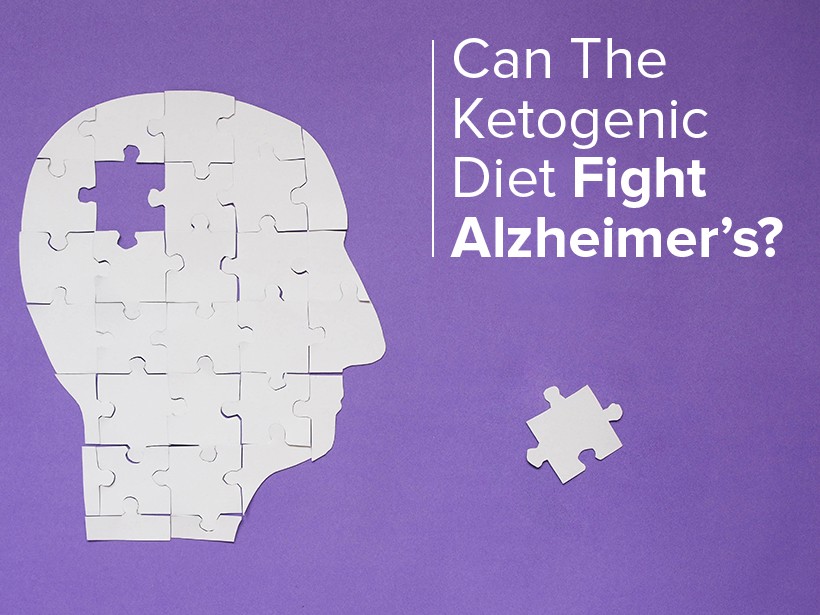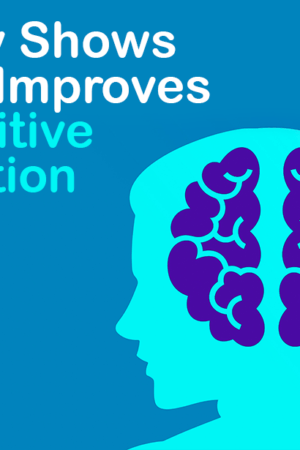Alzheimer’s disease (AD) is a type of dementia, a chronic neurodegenerative disease. It’s characterized by loss of memory and declining cognition. People with AD typically have problems remembering things and speaking. They may also suffer from mood swings and behavioral changes.1 AD affects individuals over the age of 65, on average. On the molecular level, AD is caused by a loss of neurons and the buildup of amyloid B-peptide-containing plaques in the brain. Interestingly enough, the ketogenic diet may be useful in alleviating some of the symptoms of AD and even reversing it!
Ketones Reverse Alzheimer’s
So, how do ketones help reverse the condition of Alzheimer’s? Researchers looking to ketosis for a potential solution found that it protects the brain from neurodegeneration.2 Specifically, in AD, beta-amyloid levels are high which is actually reduced with a high-fat/low-carb diet. A recent study clarified the link between ketones, amyloid, and cognitive function. The researchers studied this in mice with AD whose neurons were treated with amyloid. Amyloid increased oxidation and disrupted a mitochondrial enzyme complex which ketones actually reversed and helped even more by restoring normal plasticity in the brain and memory performance.3
Support for the Treatment
Not convinced? In a study of 20 people with Alzheimer’s disease who were given either a placebo or medium-chain triglycerides (MCTs, which are highly recommended on the keto diet), ketone levels were measured after a 90 minute waiting period post treatment administration.4 Ketone levels increased which correlated with memory improvements. With that in mind, is it time sensitive? It is thought to be time sensitive in that a ketogenic diet will be more helpful in early treatment of people with Alzheimer’s opposed to treatment years after having the condition.5
A Ketogenic Prescription
A successful ketogenic diet prescription is in the works. Since initial reports indicate it may be helpful in treating AD, further studies are looking into how to appropriately administer the treatment. High-fat diets, medium chain triglyceride supplements, or ketogenic compounds don’t always produce consistent results in all patients. A contributing issue is patient compliance in strict diets or taking supplements.6
Although there are challenges, the ketogenic diet holds promise as a potential treatment for Alzheimer’s. Before you know it, this diet may actually become a real solution to a very serious condition.
NUTRITIONAL DISCLAIMER
The content on this website should not be taken as medical advice and you should ALWAYS consult with your doctor before starting any diet or exercise program. We provide nutritional data for our recipes as a courtesy to our readers. We use Total Keto Diet app software to calculate the nutrition and we remove fiber and sugar alcohols, like erythritol, from the total carbohydrate count to get to the net carb count, as they do not affect your blood glucose levels. You should independently calculate nutritional information on your own and not rely on our data. The website or content herein is not intended to cure, prevent, diagnose or treat any disease. This website shall not be liable for adverse reactions or any other outcome resulting from the use of recipes or recommendations on the Website or actions you take as a result. Any action you take is strictly at your own risk.
- Research Shows Improvement in Anorexia Nervosa Condition With Keto - August 6, 2018
- New Potential for Ketogenic Diet to Prevent Alcohol Withdrawal Syndrome - August 1, 2018
- Woman on Early Menopause Saved By Keto - July 25, 2018




